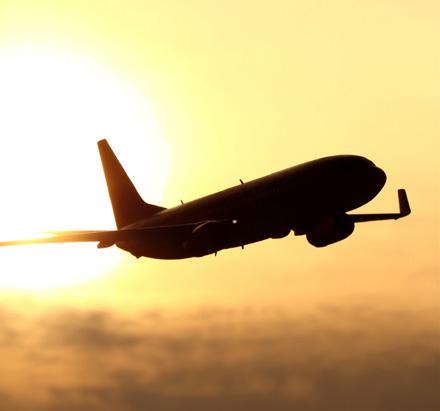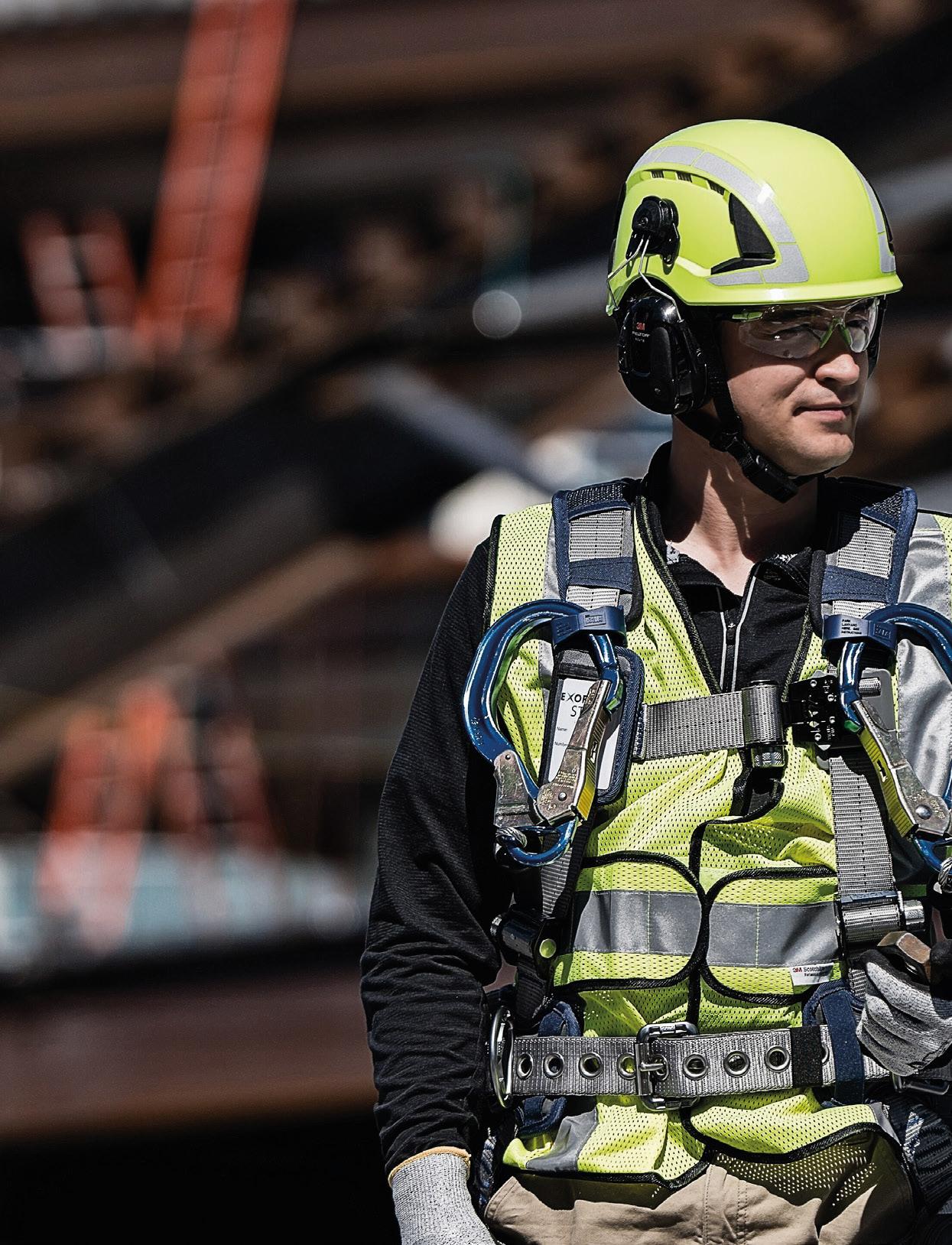
6 minute read
DOWNFALL - THE CASE
from Insight Issue 15
Downfall The Case Against Boeing
In his latest blog, Tim Marsh discusses the $2.5 billion dollar fine and the last word in safety culture case studies…


Recently in a discussion with a potential client I quipped that they didn’t need a consultant at all – they just needed to gather as a management team and watch the Netflix film ‘Downfall’. Then – ‘don’t do that’.
It is perhaps the most straightforward safety case study of all time with a company with a once excellent culture and worldwide reputation reduced to one with a terrible culture that was fined $2.5 billion dollars following two of their planes simply falling from the sky killing hundreds of passengers.
Background
Initially, Boeing were a company driven by engineering excellence. Working out of Seattle they built innovative planes with great professionalism and pride. The Jumbo 747, in particular, transformed global travel and made the world a more connected place decades before Zoom was invented. The well-known passenger saying ‘If it aint a Boeing then I aint going’ a real badge of honour. On a day-to-day level, engineers that spotted potential issues during design and build were lauded and the observations welcomed. It was, by consensus, an open, continuously improving, learning focused and empowered culture.
Then it all went horribly wrong
Following a merger with the Chicago based McDonald Douglas in 1997, profits and share price weren’t left to take care of themselves but became the primary
focus. In this new world (think Gordon Gekko of the filmWall Street) employees and teams were actively encouraged to share ownership of the stock market price as the ultimate tracker of success. (A spectacularly naive, perverse and deranged view of what motivates the average human psyche if you ask me even before we talk about what inevitably happens next). Hugely symbolically, HQ is moved from Seattle to Chicago. In part, this is so engineering teams alarmed and enraged by the many ‘tough but argued to be necessary’ commercial decisions are a thousand miles away and not in the same building. What inevitably happens next is that a blame culture develops where no news becomes “good news” and where engineers that raise concerns – inconveniently in writing in particular – are no longer seen as useful but as troublemakers. The previous culture of excellence degrades quickly. Then, facing strong competition from Europe’s Airbus, the decision is made to not spend years designing a new plane but to upgrade an existing one that’s decades old. Initially, this is a success. Upgrading the original 737 (long proven) is quicker but there are also, crucially, fewer regulators to satisfy and, even more crucially for sales potential, no expensive training needed for the pilots of potential customers. And this commercial call does indeed turn into large share price boosting sales for the 737 ‘Max’… But, the more fuel-efficient engines are bigger and need slight repositioning and require a bit of automatic kit (the MCAS) that points the plane in the right direction and helps stop the nose raising and the plane stalling. The trouble is that if the MCAS malfunctions, then pilots have just 10 seconds to prevent the plane being put into an irreversible dive. Unbelievably, that kit wasn’t designed to come with a second line of defence should it fail so it was always going to be the pilots that saved the plane. Incredibly, by Boeing policy, the pilots of the customer airlines weren’t trained in this – indeed the pilots didn’t even know the new kit MCAS function existed.

The First Crash
In October 2018, Lion Air Flight 610 crashes with all 189 on board killed when the MCAS system fails again. Boeing (with hugely racist undertones) point at the Indonesian pilot saying that this wouldn’t have happened in the US. In the film, the famous ‘Miracle on the Hudson’ pilot Chesley Sullenberger pops up to say, ‘yes it would’. (I’ve no idea if he added off camera ‘because we’re not clairvoyant either’). Boeing hold this line despite (or perhaps appallingly because of) in-house data predicting a plane will fall out of the sky every two years on average… Then, with Boeings management sitting in Chicago performing mental gymnastics of the worst kind (or worse) and crossing their fingers, just five months later, in March 2019 Ethiopian Airlines flight 302 crashes in a near identical incident in the sea off Ethiopia, with 157 killed. Incredibly, (unless you know how cultures work) Boeing remain defensive and bullish and now seek to blame the African pilots. However, when China are first to ban the 737 Max and many others following suit soon after, the entire fleet need to be grounded for almost two years. I’d urge readers to watch the film if they can. My prediction: you’ll think that a $2.5 billion dollar fine paid to avoid any prosecutions was getting off very, very lightly indeed. This is a corporate Faustian pact with the devil manifest through safety culture. It’s not nuanced at all. Yes, profit (or Gekko’s ‘greed is good’) can drive innovation and efficiency but what use is that to anyone but shareholders (in the short term) if all values, principles and humanity are lost? Though sympathy goes first of course to the passengers and their family and friends we might also be mindful of the thousands of dedicated and hardworking engineers and employees of Boeing who’s lives and careers have been sullied and tarnished forever by association. (What Sidney Dekker calls the ‘third tranche’ of victims). It is, I think, as simple and sickening a case study as I’ll ever have the misfortune of summarising. https://www-shponline-co-uk.cdn. ampproject.org/c/s/www.shponline.co.uk/ culture-and-behaviours/downfall-the-caseagainst-boeing/amp/
The way to a brighter future


Stopping you in your tracks

Providing the ultimate driving experience withHyperLineTM andHyperGripTM
For carriageway markings that illuminate your road ahead and surface treatments that reduce your stopping distances, everything about working with QMS is designed to make YOUR journey safer and YOUR driving experience more enjoyable. Designed to perform, installed to last.
Passionate People : Delivering Excellence : On time, every time!
Let QMS deliver beyond your expectations, visit www.qms.uk or talk to our team on 01626 836777 QMS Ltd, Fairfax Road, Heathfield Industrial Estate, Newton Abbot, Devon TQ12 6UD
Help keep your workers safe!
Infrastructure projects include many different complex hazards and applications that pose a risk to the workers health.
At 3M, we understand these risks and that they must not be underestimated.

As your reliable partner in personal protective equipment, 3M can help you identify hazards and minimise risks with our range of comfortable, well designed and effective integrated solutions to build on your safety.
Respiratory exposure hazards
Working at height hazards
Noise
Eye injuries
Falling objects and head impacts









